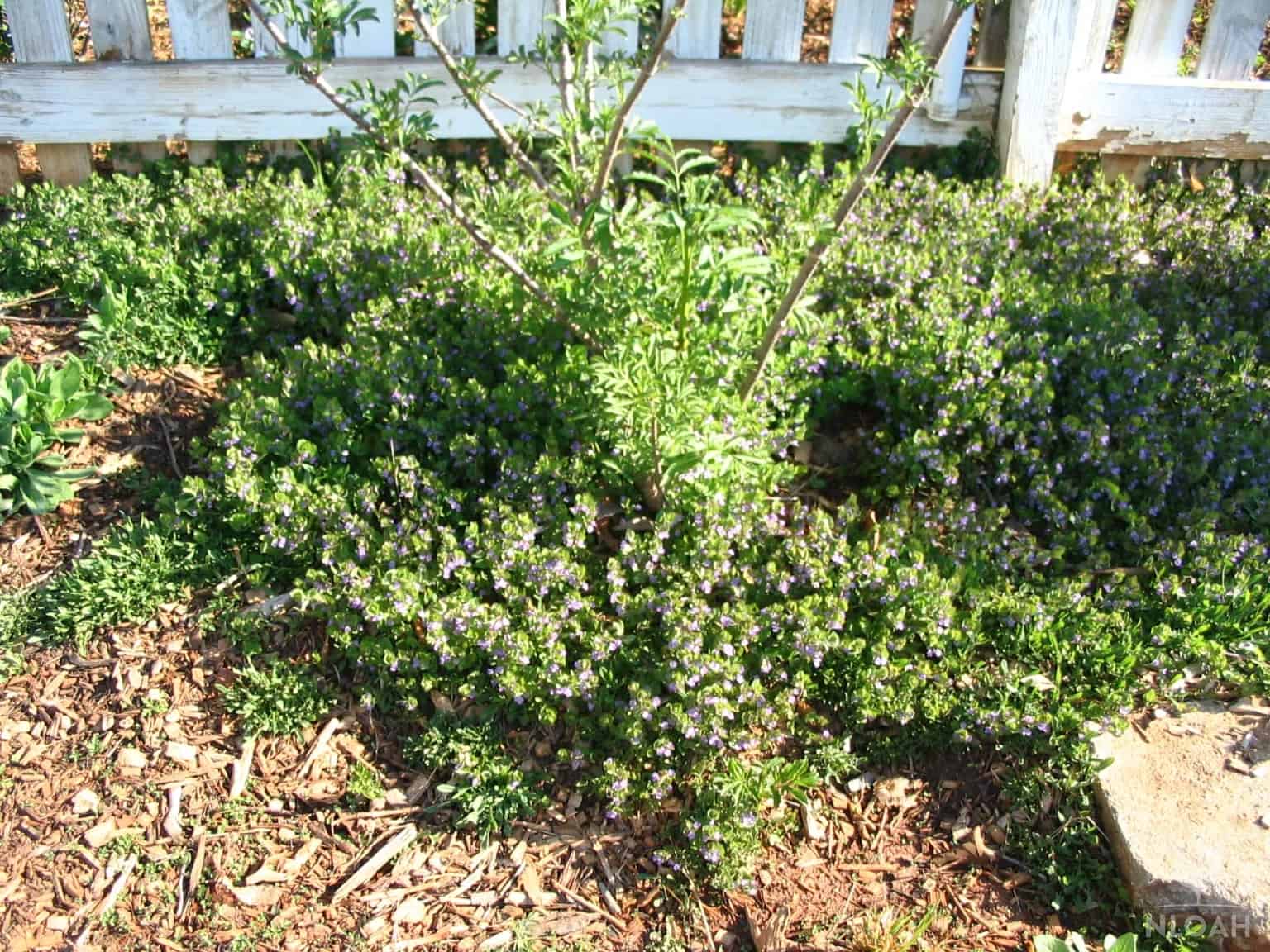Bugleweed is toxic to dogs and can cause digestive issues and respiratory problems. This plant is harmful to your furry friend and should be kept out of their reach to ensure their safety.
Ingestion of bugleweed can lead to symptoms like vomiting, diarrhea, and difficulty breathing. It’s important to be cautious and avoid planting bugleweed in areas where your dog has access. If you suspect your dog has consumed bugleweed or is experiencing any adverse effects, seek immediate veterinary attention.
Keeping your dog away from toxic plants is crucial for their well-being and overall health.
What Is Bugleweed?
Bugleweed is a herbaceous plant commonly found in North America and Europe. Its scientific name is Lycopus virginicus. This perennial plant belongs to the mint family and is known for its unique purple flowers. Bugleweed has been used in traditional medicine for various purposes due to its medicinal properties.
It is believed to have a calming effect on the nervous system and can be used to treat conditions like anxiety and insomnia. Additionally, bugleweed is known for its potential benefits in regulating thyroid function. There are several varieties and species of bugleweed, each with its own distinct characteristics.
While bugleweed is generally safe for human consumption, it is important to note that it can be toxic to dogs. Ingesting bugleweed can cause gastrointestinal upset, lethargy, and even liver damage in dogs. Therefore, it is advised to keep bugleweed away from your furry friends and seek veterinary assistance if any signs of toxicity occur.
Symptoms Of Bugleweed Toxicity In Dogs
Bugleweed can be toxic to dogs, and it’s important to be aware of the symptoms. Digestive symptoms may include vomiting and diarrhea. Neurological symptoms can manifest as tremors or seizures. Respiratory symptoms such as difficulty breathing or coughing may occur.
Skin and eye symptoms may present as redness or irritation. Other potential symptoms could include depression, weakness, or increased heart rate. If you suspect bugleweed toxicity in your dog, it’s crucial to seek veterinary care immediately. They can provide the necessary treatment and interventions to help your pet recover.
Being cautious and attentive to your dog’s environment can help prevent accidental exposure to bugleweed and other toxic substances. Keep your furry friend safe and healthy by being aware of potential hazards and seeking professional advice when needed.
Treatment And Management Of Bugleweed Toxicity In Dogs
Bugleweed toxicity in dogs requires veterinary evaluation and diagnosis to determine the extent of the problem. Once diagnosed, treatment and management options can be explored. Supportive care measures may be implemented to address the symptoms and provide relief. Decontamination options, such as inducing vomiting or administering activated charcoal, may be considered to remove the toxic substance.
Medications and treatments may be prescribed to counteract the effects of the bugleweed toxicity. Follow-up care and monitoring are essential to ensure the dog’s recovery and to address any potential complications. It is important to seek veterinary assistance promptly if bugleweed ingestion is suspected in a dog, as early intervention can improve outcomes.
Vigilance and caution should be exercised to prevent dogs from accessing areas where bugleweed or other potentially harmful plants are present.

Credit: www.newlifeonahomestead.com
Preventing Bugleweed Toxicity In Dogs
Bugleweed, also known as ajuga, can be toxic to dogs if ingested in large quantities. It is important for dog owners to be aware of the potential risks and take precautions to prevent bugleweed toxicity. One way to avoid this is by identifying areas with bugleweed and keeping dogs away from those spaces.
It is also recommended to supervise dogs when they are in areas where bugleweed is present. Additionally, it is crucial to educate others about the dangers of bugleweed toxicity in dogs. In terms of landscaping and gardening, there are safe alternatives to bugleweed that can be used.
Overall, being aware of the potential toxicity and taking necessary preventive measures can ensure the safety and well-being of our furry friends.
Frequently Asked Questions On Is Bugleweed Toxic To Dogs?
Is Bugleweed Ground Cover Safe For Dogs?
Yes, bugleweed ground cover is safe for dogs to be around.
Is Bugleweed Plant Poisonous To Dogs?
Yes, bugleweed plants can be toxic to dogs.
Is Bugleweed Poisonous?
Bugleweed is not poisonous; it is safe to use and does not pose any toxicity risks.
What Kind Of Ground Cover Is Safe For Dogs?
Safe ground covers for dogs include grass, artificial turf, mulch, and gravel with rounded edges.
Conclusion
It is important for dog owners to be aware of the potential dangers of bugleweed. While this plant is not considered highly toxic to dogs, it can still cause mild gastrointestinal upset if ingested in large quantities. As with any plant or substance, it is best to err on the side of caution and prevent your dog from consuming bugleweed.
If you suspect that your dog has ingested bugleweed and is exhibiting signs of illness, it is crucial to seek veterinary attention promptly. Remember, prevention is always key when it comes to keeping our furry friends safe and healthy. By ensuring a pet-friendly environment and staying informed about potentially harmful plants, we can help protect our beloved dogs from unnecessary harm.
